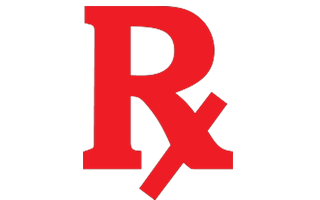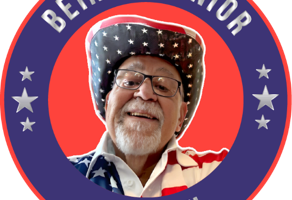 The New York Times recently published a very lengthy story focusing on the suicide of a young man after what appeared to be addiction to the drug Adderall, used to treat attention deficit disorder. The story highlighted, in a dramatic and catastrophic way, one particular family’s trauma.
The New York Times recently published a very lengthy story focusing on the suicide of a young man after what appeared to be addiction to the drug Adderall, used to treat attention deficit disorder. The story highlighted, in a dramatic and catastrophic way, one particular family’s trauma.
This young man, a college graduate considering medical school, had taken ADD drugs at school, given to him by friends, and knew what to say to get his own prescription. He saw a doctor briefly, was given medication, and was able to continue filling prescriptions by reporting the right things, even though his parents had serious concerns that he was abusing and becoming addicted to the medication. Eventually the young man killed himself and there is now an investigation into how this happened.
Like most people reading the story I was riled up emotionally, felt compassion for the family, and angry that something like this had happened. But as a medical professional I also saw all the places where things can go wrong due to a flawed system, a pill-happy society, and a savvy, intelligent patient. I have written in these pages before about the disarray of our healthcare system, and the story of a young man covering up his drug addiction to get more drugs, overworked prescribers, and too much focus on confidentiality highlights my beliefs perfectly. It also reminded me of my own practice, and times where I have wondered if what a patient was showing me in 45 minutes per week was accurate, how much should I listen to the family member of an adult patient who is calling me worried, and what can I do, within the confines of a broken system, to help a person get help.
Each and every one of those issues that I have seen (and psychologists do not prescribe in most states, so I don’t have the added issue of being responsible for medications), were echoed in the New York Times article.
It is important for all of us to be smart consumers about everything from buying groceries to demanding good healthcare. Unfortunately, what has happened is that drug companies, over the past 20 or so years, have started marketing directly to the consumer, (“Ask your doctor for the purple pill/Ask your doctor if Celexa is right for you/Tell your doctor you want Zoloft to treat your social anxiety,” etc.), and most consumers have little, if any, knowledge of pharmacology, addiction, or drug/drug interactions. I have a doctorate in psychology, a post-doctorate in neuropsychology, and a Master’s degree in psychopharmacology, and even I can’t keep up. So, we have a young man whose friends are sharing ADD drugs at school, mainly stimulants–and let us not forget nicotine, cocaine, caffeine, very very addictive drugs are also stimulants–who comes home after four years of college and wants to feel the same effects he had felt when he “borrowed” a classmate’s Ritalin, Adderall, and the like. He knows what to say to a doctor to get a prescription, and since these drugs are generally seen as fairly harmless, he easily gets what he wants. Over time his parents become quite concerned, but when they attempt to address their concerns with a prescribing physician, they are told that because he is an adult they cannot be involved in the treatment. Eventually the young man becomes violent and the police are involved, causing him to leave home. The final outcome is suicide.
In piecing together the story for the Times, it became clear what had happened. Many states have yet to institute prescription databases so that it would be harder for people who are pill shopping to do so, so this young man was able to abuse the drug and refill prescriptions sooner than he should have simply by going to different pharmacies in different towns or getting pills from different doctors. This is done all the time, one of the biggest culprits being individuals who are prescribed narcotic pain medications for legitimate injuries who then become addicted to them. In a combination of legitimate prescriptions, buying on the street, multiple prescriptions from multiple doctors, and misusing the medication, such as snorting it, people become addicted to and dependent on medication.
The second thing that happened was that the prescribing physicians did not spend enough time truly investigating the need for medication. Too often psychotropic medications are given out based on a checklist. If I want ADD medication I know what to say—I have trouble concentrating, I can’t sit still, I am disorganized, etc. If I want Xanax or Ativan I can make up another group of symptoms—anxiety, panic attacks, fears of going crazy, trouble sleeping. You get the picture. In the past insurance companies would not pay for psychological or neuropsychological testing if the diagnosis turned out to be attention deficit disorder, so individuals had to pay thousands of dollars out of pocket for a full evaluation that could better weed out those who were drug shopping and those who truly needed medication for a true disorder. Not to mention that the testing could help determine more clearly the individual’s strengths and weaknesses, helping to provide a better treatment plan where medication may or may not be part of the picture. More recently I see that people are covered for this service, and hopefully there are fewer false positives. While I still diagnose ADD, I also, through testing, find other issues that are primary or actually rule out ADD, such as anxiety, a language processing disorder, or a learning disability. Handing out medication with a potential for abuse based on a checklist is like giving chemotherapy without a biopsy.
A cause of this lack of time spent has a lot to do with insurance reimbursements. Psychiatrists are already, overall, the lowest paid physicians, due to their inability to see more than one patient at a time, the length of time of a therapy session, and so on. It is not unusual, therefore, for a psychiatrist to bill for very short medication checks, assessing only for negative side effects and the efficacy of the medication, refilling a prescription, and moving on to the next patient. And with insurance reimbursement rates remaining stagnant or even dropping, who can blame the doctors for what they do? Hundreds of thousands of dollars in student loans, office overhead, and the need to feed their own families are realities. Doctors are no different than anyone else who needs to maximize productivity. If a patient says, “Thanks Doc, the medication is working great.” there is a lot of incentive to take that statement at face value.
The final issue highlighted in the piece was that the young man’s parents tried to address their fears with the doctors, but got nowhere do to confidentiality issues. Having been on the receiving end of such panic, I can relate. I am not allowed to speak to anyone about my patients without their permission, and often I have heard that a family member is “part of the problem” and I don’t know how much to believe when a hysterical parent or spouse reaches out to me. In addition, it is so difficult to get an adult into a psychiatric hospital against his will or for long enough to make a difference, that even while I have had family members frantic I have had cases where a patient may be brought to an emergency room and released a few hours later, with the family no less worried.
Many doctors do go above and beyond, putting in time they don’t get paid for, scheduling extra appointments, and the like. But at times, like in the Times story, a perfect storm happens and tragedy strikes. Having seen similar cases myself, I not only feel terrible for the family, but also for the medical professionals who may be vilified because of what happened. Again, as I said, it is important for us to be smart consumers. Medications work wonders, and I often refer patients for medication consults if I think it would be helpful. But we can’t lose sight of the fact that the medications we think are so harmless are powerful chemicals that change the workings of our brains and can have terrible side effects. The use of ADD medications among young adults has more than doubled in recent years, and this is not just because of better diagnostic procedures. Many are subject to abuse due to the stimulating effects, as well as the anti-anxiety drugs for the opposite reason—they make us feel calm and relaxed and generally “good.” Most people, I truly believe, do not abuse their medication, and some studies have found that those who do have a tendency to abuse other things as well, so that someone may be misusing her Xanax, but has a history of misusing alcohol or other drugs prior to this. It is important to monitor your response to medication so that you can be proactive if it is not working for you, or you are starting to feel dependence.
Also, there are a few petitions you can find online right now, riding the coattails of Obamacare no doubt, urging insurance companies to cover more services and to help doctors to earn the wages they should be without having to see 10 patients an hour. Medicare has just again cut reimbursement rates; if you, dear reader, went to work today and found out your salary was cut you would look for another job, but this has been happening to doctors for years. I quit the majority of the insurance panels a few years ago, and I am working fewer hours, have more time to give my patients, make the same money, and can afford to do a few hours a week of low-fee work because of it. Not everyone can simply turn their backs on insurance, depending on the specialty and location of practice, but it should seem odd to the lay person that once I stopped being a “preferred provider” I could better serve my patients and still make the money I need to pay my own bills.
I fear that if things don’t change, there will be more newspaper articles highlighting medication mismanagement and grieving families. We have lost sight of how medical care needs to be managed to avoid tragedies like this one, and we have stopped being cautious about the chemicals we so easily put into our bodies.






